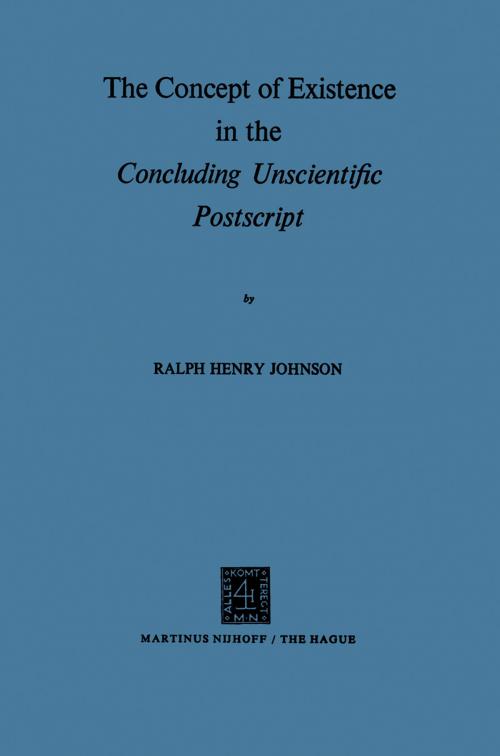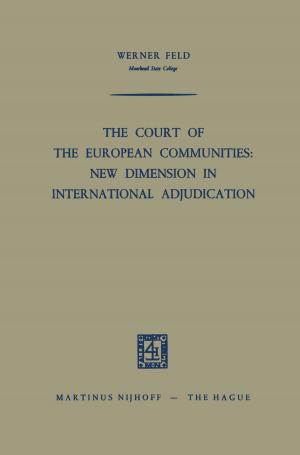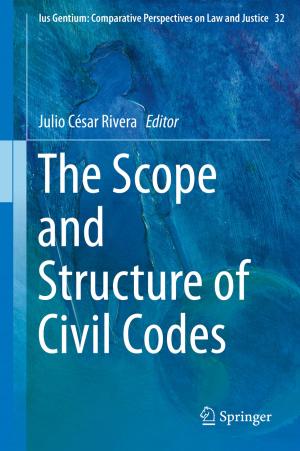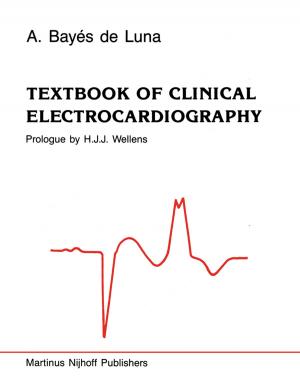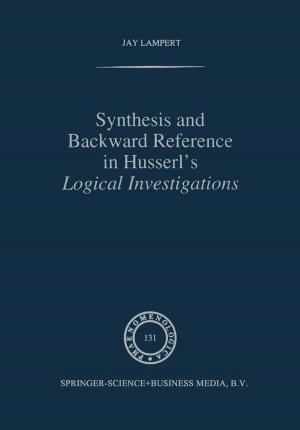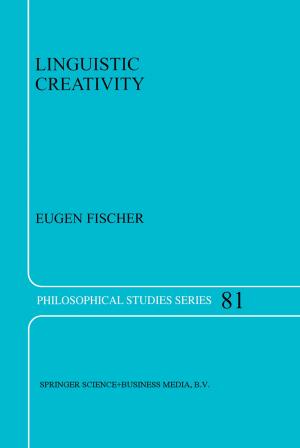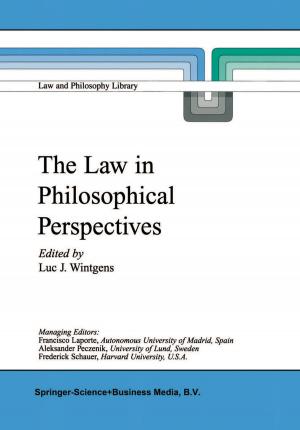The Concept of Existence in the Concluding Unscientific Postscript
Nonfiction, Religion & Spirituality, Philosophy, History, Criticism, & Surveys, Metaphysics| Author: | R.H. Johnson | ISBN: | 9789401028363 |
| Publisher: | Springer Netherlands | Publication: | December 6, 2012 |
| Imprint: | Springer | Language: | English |
| Author: | R.H. Johnson |
| ISBN: | 9789401028363 |
| Publisher: | Springer Netherlands |
| Publication: | December 6, 2012 |
| Imprint: | Springer |
| Language: | English |
The writings of Kierkegaard continue to be a fertile source for con temporary philosophical thought. Perhaps the most interesting of his works to a philosopher is the Concluding Unscientific Postscript to the Philosophical Fragments. The Fragments is a brief, algebraic piece in which the author attempts to put forward the central teachings of Christianity in philosophical terminology. The. work is addressed to a reader who has a philosophical bent and who may therefore be tempted to relate to Christianity via such questions as: Can the truth of Christian ity be established? The analysis of the Fragments establishes that this way of relating to Christianity is misguided, since Christianity and phil osophy are categorically different. Having done this, the author turns his attention in the Postscript to the question of how an individual human being can properly establish a relationship to Christianity. In order to become a Christian, one must first of all exist. "Nothing more than thatP' one may be tempted to think. Yet at the very core of the Postscript is the notion that to exist as an individual human being is difficult. The author goes so far as to claim that men have forgotten what it means to exist.
The writings of Kierkegaard continue to be a fertile source for con temporary philosophical thought. Perhaps the most interesting of his works to a philosopher is the Concluding Unscientific Postscript to the Philosophical Fragments. The Fragments is a brief, algebraic piece in which the author attempts to put forward the central teachings of Christianity in philosophical terminology. The. work is addressed to a reader who has a philosophical bent and who may therefore be tempted to relate to Christianity via such questions as: Can the truth of Christian ity be established? The analysis of the Fragments establishes that this way of relating to Christianity is misguided, since Christianity and phil osophy are categorically different. Having done this, the author turns his attention in the Postscript to the question of how an individual human being can properly establish a relationship to Christianity. In order to become a Christian, one must first of all exist. "Nothing more than thatP' one may be tempted to think. Yet at the very core of the Postscript is the notion that to exist as an individual human being is difficult. The author goes so far as to claim that men have forgotten what it means to exist.
